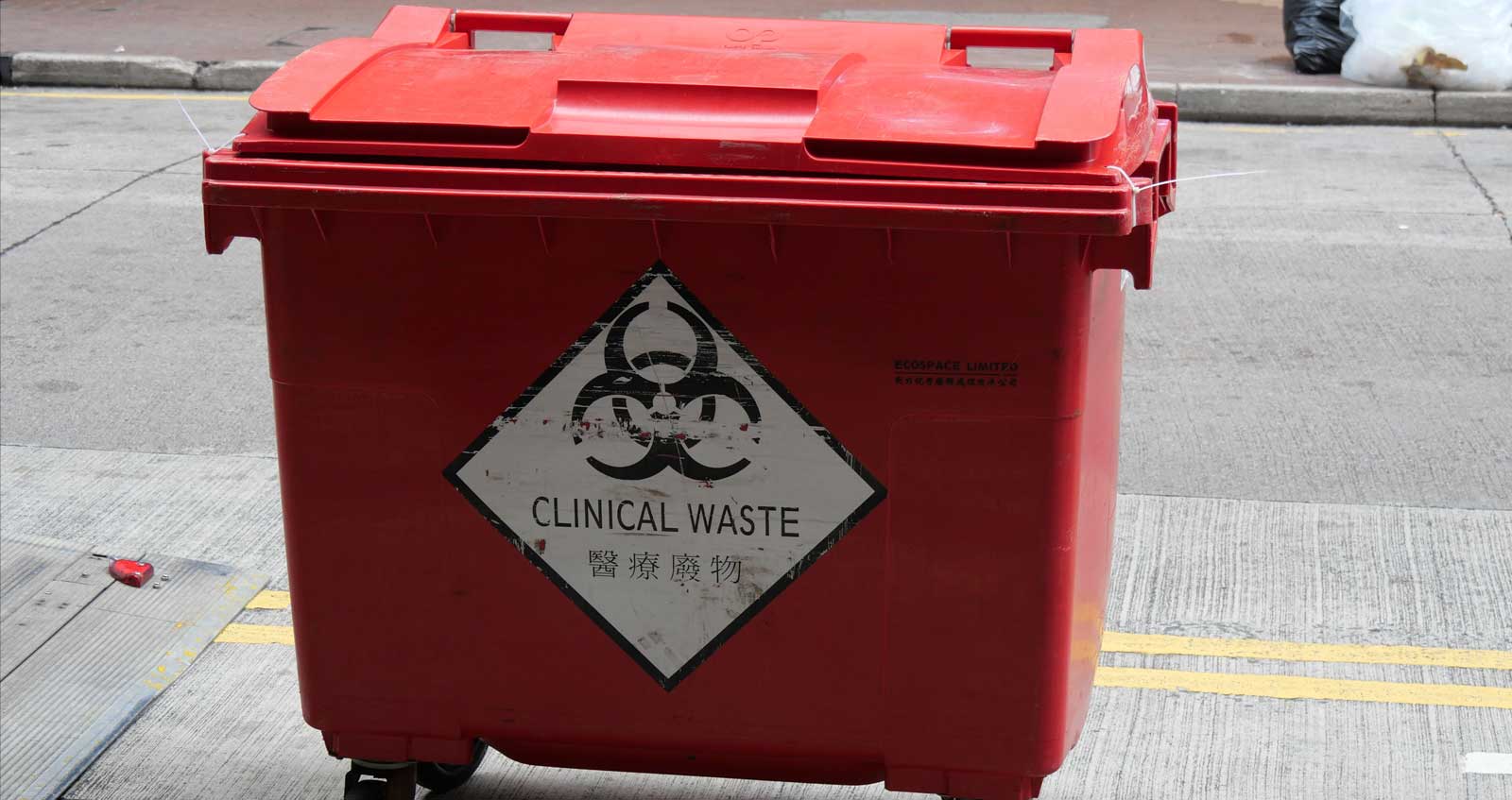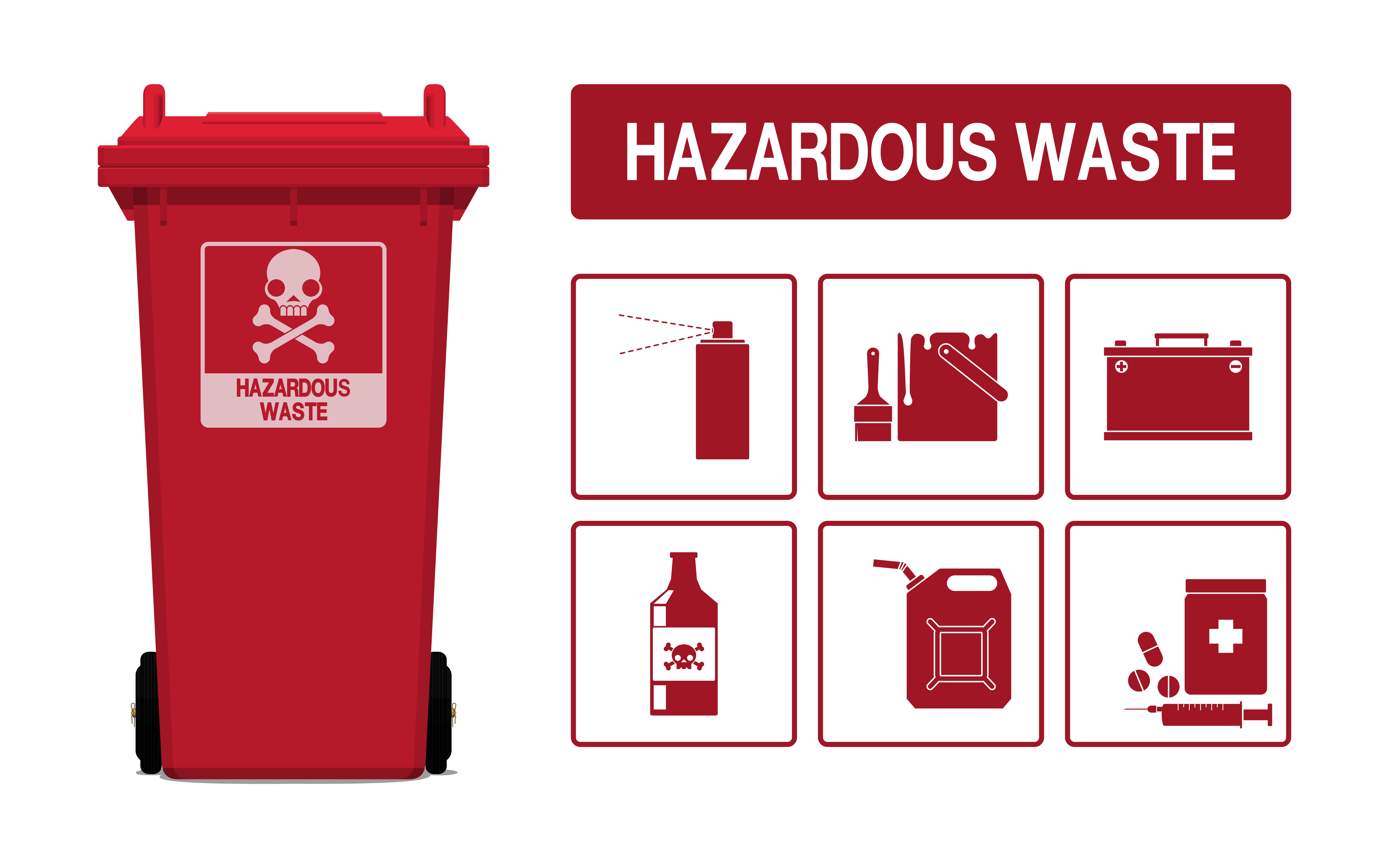Remain Ahead of Rules: Specialist Suggestions on Medical Garbage Disposal
In a world where the healthcare industry is frequently progressing, it is vital for medical centers to remain ahead of laws when it comes to the correct disposal of clinical waste. From comprehending the various classifications of medical waste to applying the ideal collection and partition methods, this discussion will certainly supply important understandings and actionable tips to help centers stay in advance of regulations in the ever-changing landscape of clinical waste disposal.
Recognizing Clinical Waste Categories
Understanding clinical waste categories is necessary for correct disposal and administration in healthcare facilities. Medical waste describes any waste created by healthcare tasks that might present a danger to public wellness or the atmosphere. It is essential to classify medical waste properly to ensure its risk-free handling, therapy, transport, and disposal.
There are numerous categories of medical waste that medical care facilities require to be aware of. One of the most common classifications consist of contagious waste, pathological waste, sharps waste, pharmaceutical waste, and chemical waste. Each category has particular standards and laws for its proper management and disposal.
Transmittable waste includes materials polluted with blood or other physical liquids, such as handwear covers, gowns, and laboratory cultures. Pathological waste refers to human tissues, body organs, or body parts that require special delivery and disposal. Sharps waste consists of made use of needles, syringes, and various other sharp things that can cause injury and transmit infections. Pharmaceutical waste comprises ended, unused, or contaminated drugs that need careful handling and disposal. Lastly, chemical waste includes solvents, disinfectants, and various other chemical materials made use of in medical care centers.
Staying Up-To-Date With Regulatory Modifications
Staying present with regulative modifications is crucial for medical care centers to make certain compliance and appropriate monitoring of medical garbage disposal. medical waste removal service. With laws constantly progressing, it is necessary for healthcare facilities to stay up-to-date to stay clear of charges, fines, and potential damage to the setting and public health and wellness
To stay in advance of governing changes, healthcare centers must establish a system for surveillance and monitoring updates. This can be done by signing up for governing e-newsletters, attending conferences and workshops, and actively joining market associations. Furthermore, facilities ought to assign a team member or group liable for staying informed and sharing info to relevant stakeholders.
Routine interaction with regulatory agencies is additionally essential. Medical care facilities must establish connections with local, state, and government agencies to ensure they recognize any modifications in laws that may affect their waste monitoring methods. This can be done via normal conferences, involvement in public remark durations, and proactive interaction with regulatory agencies.
In addition, healthcare facilities must consider partnering with waste management companies that concentrate on medical garbage disposal (medical waste disposal services with WasteX). These companies are commonly fluent in the most up to date laws and can offer support and assistance to make certain conformity
Implementing Proper Collection and Partition Approaches
To properly manage clinical garbage disposal, medical care centers must establish correct collection and partition approaches according to governing standards. Applying these methods guarantees the risk-free handling and disposal of potentially dangerous materials, safeguards the environment, and lessens the threat of injuries and infections to healthcare employees and the public.
Correct collection and partition methods entail the usage of marked containers and classifying systems. Health care facilities must give plainly identified containers for different sorts of medical waste, such as sharps, transmittable waste, pharmaceutical waste, and non-hazardous waste. These containers need to be color-coded and clearly marked to avoid complication and advertise very easy identification.
In addition, health care facilities should train their team on the appropriate treatments for collecting and setting apart clinical waste. This consists of educating them on the various types of waste, the suitable containers to use, and the importance of following standards and policies. Routine training sessions and correspondence course ought to be carried out to ensure that employee stay up-to-date on best practices.
Additionally, health care facilities need to develop a system for normal collection and disposal of clinical waste. This might entail partnering with certified waste monitoring firms that description concentrate on clinical garbage disposal. These firms will ensure that the accumulated waste is carried and gotten rid of in compliance with regulative requirements.
Choosing the Right Disposal Approaches
Incineration is among the most usual and effective techniques for getting rid of specific kinds of clinical waste, such as pathological waste and sharps. It includes the controlled burning of waste at heats, reducing it to ash. Nonetheless, incineration can release dangerous toxins right into the air and contribute to air pollution.

Various other disposal techniques include chemical therapy, microwave therapy, and landfilling. Chemical therapy involves the use of chemicals to sanitize and reduce the effects of the waste. Microwave treatment more helpful hints utilizes microwave power to heat and sanitize the waste. Landfilling involves burying the waste in a marked land fill area (medical waste disposal services with WasteX). Landfilling needs to be the last resort due to the possible danger of contamination to dirt and groundwater.
Guaranteeing Compliance With Documents and Training
After thoroughly thinking about the appropriate disposal techniques for medical waste, healthcare centers should make certain compliance with laws and minimize environmental impact by carrying out efficient paperwork and training procedures. This step is essential in keeping a risk-free and sustainable environment for both medical care employees and the general public.

Training is just as essential in guaranteeing compliance with guidelines. Healthcare workers that deal with clinical waste needs to receive proper training on waste segregation, handling, and disposal procedures. This training must cover subjects such as the proper use personal protective equipment, identification of various kinds of waste, and the appropriate disposal approaches for each and every waste category. By giving thorough training, medical care centers can empower their staff to make enlightened decisions and reduce the threat of incorrect garbage disposal.
Verdict
Finally, staying ahead of regulations in medical waste disposal is essential for medical care centers. medical waste removal near me. Understanding the different groups of medical waste, remaining updated with regulative adjustments, applying proper collection and partition approaches, selecting the appropriate disposal methods, and making certain compliance through documentation and training are all crucial steps. By adhering to these guidelines, medical care organizations can effectively dispose and handle of medical waste in a responsible and safe manner
From recognizing the various groups of medical waste to implementing the right collection and segregation approaches, this discussion will certainly provide useful insights and actionable tips to help facilities remain in advance of policies in the ever-changing landscape of clinical waste disposal. - medical waste disposal services with WasteX
The most common categories include infectious waste, pathological waste, sharps medical waste disposal services with WasteX waste, pharmaceutical waste, and chemical waste. Healthcare facilities should give plainly identified containers for various kinds of clinical waste, such as sharps, transmittable waste, pharmaceutical waste, and non-hazardous waste. Health care centers ought to develop a detailed system to videotape and track all facets of clinical waste disposal, consisting of kinds of waste generated, quantities, and disposal approaches used. Medical care workers that take care of medical waste must get ideal training on waste partition, dealing with, and disposal treatments.